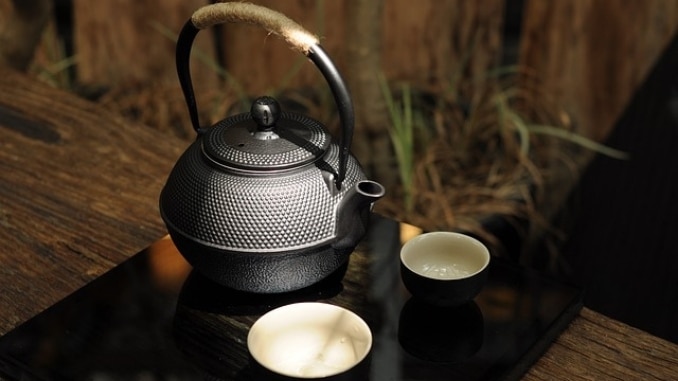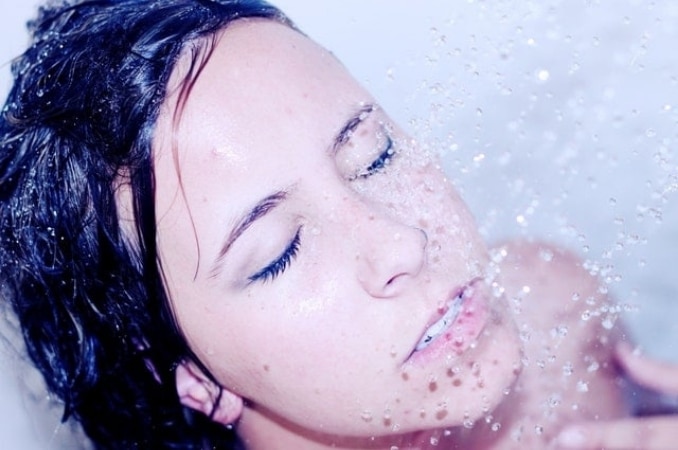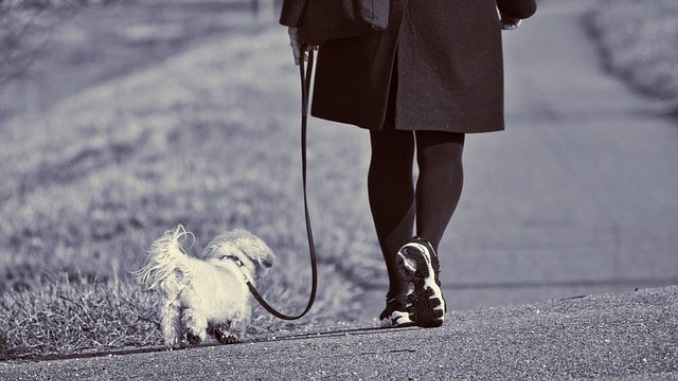
It’s only noon, and you’re already yawning. You try to shake yourself awake. You have so much to do today. You can’t be tired already.
Unfortunately, much as we try to get the recommended seven to eight hours of sleep per night, there are many times when we don’t succeed and end up dragging through the day. Perhaps you did get your sleep, but it’s late afternoon, and you’re running low on energy. Maybe you have to give a presentation soon or entertain at a get-together in an hour. What do you do then?
You can grab a cup of coffee, which as long as you aren’t sensitive to the caffeine, will probably help, but there are several other options for boosting your energy reserves. We’ve got 17 terrific ones for you to try below.
1. Drink Tea
Tea typically has less caffeine than coffee but can still give you that energy boost you need. Black and green teas are both good options as is yerba mate. It has less caffeine than coffee but more than green tea and is still filled with healthy antioxidants. Because of the caffeine, it can help wake you up so that you feel less tired, and it may also help you focus.
In a 2008 study, for example, researchers found that moderate caffeine consumption helped improve cognitive function, particularly alertness and mood. They also found that low-to-moderate intakes of caffeine ― one to eight cups of tea or up to four cups of coffee ― did not encourage dehydration, even in those who were exercising during the tests.
2. Move
Any sort of movement will help increase circulation, which can also increase your energy and alertness. One of the best things you can do is to take a quick walk outside. That will not only get you moving but will also expose you to the sun and the fresh air, both of which can help wake you up.
3. Drink Water
If you’re even slightly dehydrated, you’re likely to feel fatigued. In a 2012 study, researchers found that slight dehydration caused women to suffer from headaches, loss of focus, fatigue and low mood levels, and the dehydration was not severe at all — the women had only about one percent lower hydration than was considered optimal.
So, if you find yourself dragging, reach for a couple of tall glasses of refreshing ice water.
4. Breathe
Most of us, when going about our days, breathe shallow, small breaths. We get only limited fresh oxygen that way, which can lead to fatigue. If you’re feeling stressed or anxious, the problem gets worse as you tense up and take even smaller breaths.
Try taking five minutes to focus on deep breathing. Sit or stand up straight and inhale for about five to six seconds, focusing on your diaphragm. Your belly, more than your chest, should expand. Then, exhale for about the same amount of time, getting rid of all the air, and take in a nice long inhale again. Repeat about five times, and you should feel a little more awake and alert.
5. Eat Something Energizing
A small snack can be super energizing — as long as you choose the right foods. Some good options include a small handful of nuts, fresh fruit and cut-up vegetables, sunflower or pumpkin seeds, a boiled egg, some yogurt, a small piece of dark chocolate, a light salad, a slice of whole-wheat toast or a small bowl of oatmeal. Try to avoid high-fat, high-sugar options that may give you a short burst of energy but will drag you down later.
6. Laugh
Look at some funny cat videos or flip through a joke book. Laughing can boost your energy and can also prepare you to perform a mentally taxing task. In 2014, for example, researchers reported that adults who watched a funny video for 20 minutes scored better on short-term memory tests. Laughter also releases endorphins in the brain that help you feel good and has been linked to stress relief.
7. Call an Energetic Friend
Studies have found that moods can be contagious between humans. If you find yourself slumping over your desk, call up one of your more energetic friends. You know the ones. They seem to be brimming with energy whenever you talk to them, and you wonder where they get it all. Talking to someone like this can help you “catch” some of that energy for yourself.
8. Relax for a Minute
Stress has a way of robbing us of energy much faster than we’d lose it if we were feeling calm and relaxed. If you’re having a stressful day, expect to face some fatigue. Better yet, address that stress early on so that it doesn’t drag you down. Try taking five minutes to journal about what’s stressing you out or go into another room and stretch your muscles.
Stand up on your toes and reach your arms over your head, reach down and touch the floor if you can, twist back and forth from the waist, and then bend side to side. Alternatively, you can try looking out the window for a few minutes. Allow yourself to daydream for a bit. It can be very relaxing. Whatever works for you, try to take the stress down a notch, and you’ll likely get some of your energy back.
9. Skip It
The reason we feel fatigued in the first place is often because of overwork. Perhaps you’ve been pushing it too hard during the last few weeks. You may be amazed at how much energy you will feel if you decide to cut out of work 30 minutes early, or if you determine that you can give yourself another week on a project you’ve been killing yourself over. Find something that you can put aside for a bit and watch how much more energized you feel.
10. Take a Power Nap
Science has found that taking a quick power nap can do wonders for your body and mind. We’re talking about closing your eyes for between 10 and 20 minutes. Longer than that may help too but will take you longer to recover, and you may spend some time feeling groggy.
Quick power naps have been linked with increased alertness and performance on the job as well as increased ability to pay attention. One study even found that naps were better than caffeine for improving cognitive function.
11. Splash Some Cold Water on Your Face
You’ve heard of this one, but it does work. Motivational guru Tony Robbins is known for starting his day with a cold shower to help improve circulation and boost mood. In 2007, researchers found that cold showers either once or twice a day helped relieve the symptoms of depression.
Fortunately, you don’t have to take a full-blown shower to experience some of the energizing and mood-boosting benefits. A quick splash of cold water on the face will do the trick.
12. Turn on the Uplifting Tunes
Music has a powerful ability to affect our mood and energy. If you find your energy flagging, turn on some upbeat tunes that you like. Particularly if you’re in the middle of doing something boring and repetitive like filling out a spreadsheet or filing reports, listening to music can help boost your energy and efficiency, making the task go by much faster.
13. Let Your Nose Do the Work
What you smell can affect your brain activity directly, so why not use that to your advantage? Keep some essential oils around and use them in an aromatherapy diffuser or put a couple of drops on a cotton ball and place it nearby. Peppermint, lemon, cinnamon, rosemar, and jasmine are all scents known to help boost energy.
14. Freshen Up
If you’re starting to droop later in the day, find ways to freshen up. Doing something simple like changing your socks to a fresh pair can do the trick. So can refreshing your makeup, combing your hair, brushing your teeth or washing your hands. Go through the motions of “getting ready” for the day, and you’ll trick your brain into restarting again.
15. Try Supplements
Chronic fatigue could be a sign that you’re low on certain energizing nutrients. Check with your doctor to find out if you’re getting enough vitamin B12 or magnesium. These supplements can help you find new energy again. Other energy-boosting supplements include CoQ10, ginkgo biloba, acetyl-L-carnitine, and ginseng.
16. Chew a Piece of Gum
Surprisingly, this can work. In a 2014 study, researchers found that chewing gum improved attention and alertness, increased heart rate and quickened reaction time. Scientists think that the act of chewing itself helps to wake us up and that the stimulation of the nerve in the jaw muscles also helps banish fatigue.
17. Turn on Some Blue Light
Want to wake yourself up in the afternoon? Install some blue light bulbs in your lamps and switch them on when you start to feel droopy. Blue wavelengths help boost attention, reaction time and mood, which is great during the day. Just limit them at night as they can keep you awake. Remember that computers, tablets and cellphones all emit blue light.
For your guide to the best foods to heal your body, check out The Best Foods that Rapidly Slim & Heal in 7 Days, here!







